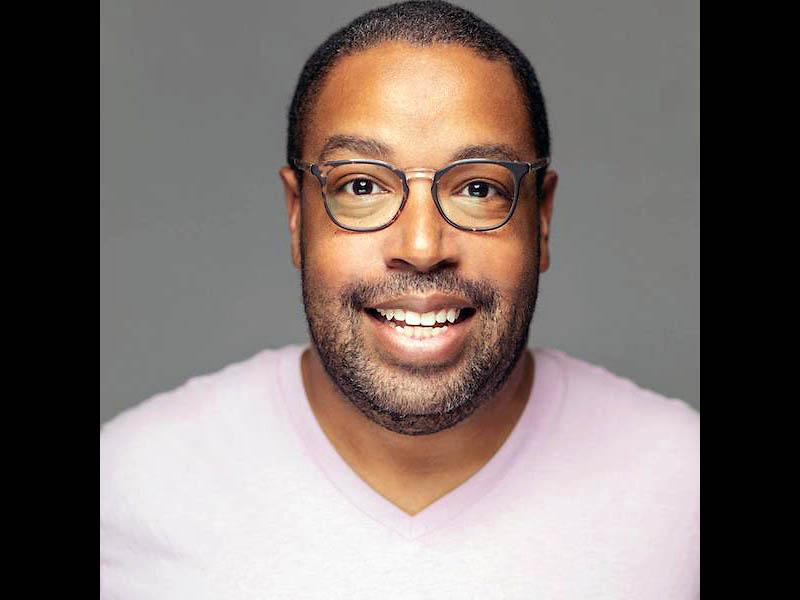 Clarksville, TN – I didn’t realize how difficult it would be for me to share my story. There is a lot of hurt and disappointment in my story as it relates to the racism and anti-blackness.
Clarksville, TN – I didn’t realize how difficult it would be for me to share my story. There is a lot of hurt and disappointment in my story as it relates to the racism and anti-blackness.
I almost made the decision to not participate in the project because I don’t want to repeat the hurt that has been inflicted on me.

I do find it important to share my experiences and the impact of those experiences, so that I never have to hear from another person that “they had no idea how bad things were for Black people in America.”
Things are bad, things have been bad since the founding of this country, and it adds insult to injury to hear the people I work with admit that they haven’t been paying attention to the vast micro- and macro-aggressions that too-often happen nationally, but that also happen at our university.
The following incidents are a small sampling of events that have happened to me during my time at APSU. I share these incidents not to make the aggressors feel bad, but to illustrate that the problems are rampant and to help my colleagues understand the long-lasting impact of their words and actions.
When you state that you “don’t see race,” and that you wish that people would stop “making everything about race,” I feel invisible and ultimately, I know that you are lying. The police see my race long before they know my name, the federal government sees my race and uses my race in the federal decision making process, and the rest of the world sees my race when I go to the doctor or walk into the grocery store or enter the classroom to teach my classes. Pretending that you “don’t see race” is impossible and is a dangerous form of willful ignorance.
When you question my understanding of language, especially vocabulary that you don’t know, you make me question my intelligence and add to my heightened insecurity around the topic of intelligence. Luckily, the dictionary and thesaurus are my old friends, but it doesn’t minimize the damage that your questioning causes.
When you voted against my promotion to full professor because you questioned my scholarly contributions but then asked me to serve on two search committees for your department, you made me feel like more of a token Black faculty member than I already feel on a daily basis.
When you yelled at me in a large faculty meeting for responding to a student’s email, you made me feel like my presence was a nuisance and that my need to multitask was not warranted. Multitasking is one of the only tools I have when serving on too many committees and helping marginalized students as one of the few Black professors on campus.
When you commented that I was wearing my “grown up clothes,” because I wore a shirt and tie to work, you negate the very real, grown up work that I do on behalf of the University, regardless of my attire.
When you beamed with pride to tell me that you bought the newest pop song on the radio because it reminded you of the hanging tree in your hometown, you made me realize that we could never be friends. No friend of mine would ever talk about the painful history of lynching in this country with a sense of nostalgia.
When you forced a Black student to fix their pronunciation of the word “ask,” in front of a large group of people, you made me feel like a parent who couldn’t protect their child from the intense, ever-present racism of the world. Even with the best of intentions for a student, there is a time, place, and methodology for working with a student on something as personal as a regional, or racialized, accent, and we all must interrogate our assumptions about accents, dialects, and pidgins as they relate to our work in higher education.
I recently came across one of the best statements about healing from trauma. “Every attack is a cry for help,” which is a simple, yet powerful statement, and as I continue to do the work of healing from racial trauma, I continually remind myself that any negative action hurled in my direction, whether intentional or unintentional, is a result of centuries of conditioning and when viewed through the lens of “a cry for help,” I am able to release a portion of the deep hurt and open the door for forgiveness and understanding.
– Marcus Hayes, chair of the Austin Peay State University Department of Theatre and Dance
If Austin Peay Could Talk
“If Austin Peay Could Talk” is a new, special series about listening. Paying tribute to James Baldwin’s novel, “If Beale Street Could Talk,” the essays in this series are meant to magnify the experiences of the University’s black faculty and staff. Every Friday, a different University employee will share their own deeply personal story about racism – stories that have been overlooked for too long. Today, Austin Peay State University is talking, and we hope you will simply listen to these important words.



